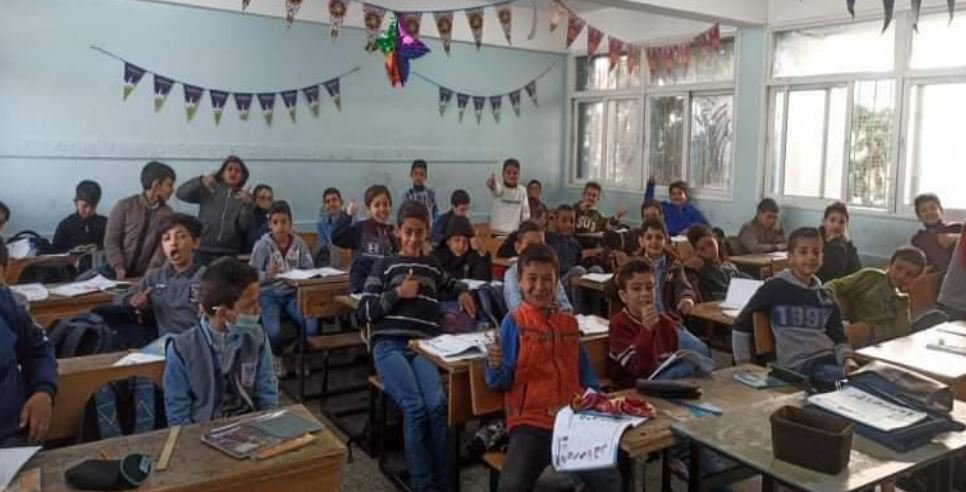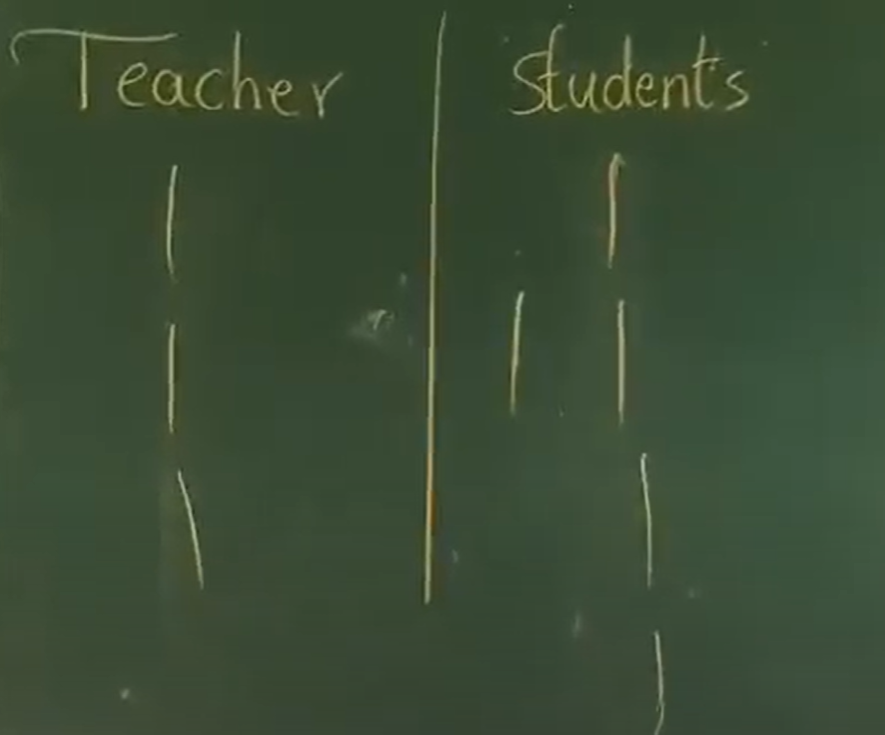Power to the pupil: changing the teacher-learner dynamic
Today’s blog post is by our administrative coordinator , Raja’a, one of the 5 lucky teachers who went to Belfast last May where she had the opportunity to present along side Sara Wood at both the IATEFL and Hands Up Project conferences. Read more about her part in the presentation in which she empowers her students.
A class in Gaza with a capacity of 45 to 50 students in a small classroom with very limited recourses and a huge curriculum to cover in a specific short period of time doesn’t seem such a brilliant environment for both teachers and students to teach and to learn. As a teacher, these are extremely challenging circumstances and I always find myself struggling to reach my class objectives, keep track of time, and get good outcomes from my students. Subsequently, I confess that I tend to control almost everything in my class which is not very exciting for them.
Empowering Learners was a term I heard so many times in sessions called Students Vs Teachers which the Hands Up Project held for the last couple of summers where I was a regular attendant. In those sessions, I witnessed how students (14- 17) felt more confident and more powerful when they were controlling their own learning. I felt very excited then and decided to try it out with my students.
My students are pretty young - 9-10 years old with a low level of English. They also lack motivation and they don’t see why they need to learn the English language, So I decided to inject some fun into the class and give them power!
They were learning to talk about future plans and intentions using be going to + infinitive, and they had already done lots of controlled practice from the coursebook. Now it was time to encourage them to use it more freely and personalize it into the bargain. I adapted Students Vs Teachers to make it suitable to their level of English and I held a competition between me and them. They had to guess what things I was going to do the next day and for each correct guess, they’d get one point. If their answer was incorrect, I’d get the point. A video of 3 minutes was recorded inside the classroom.
Tomorrow, I ……………………………………………………………….
These are some of their answers:
Tomorrow, you’re going to play football (a very confident and funny answer as they reflected their own hobbies on me). One point for the teacher- I don’t play football any more!
Tomorrow, you’re going to clean (very clever! That’s what all mums do). One point for the students.
Tomorrow, you’re going to go to Qalqilya (very ambitious answer and unlikely to happen for political reasons). One point to the teacher.
Tomorrow, you’re going to go to school (another clever answer! Of course, I have to go to school to make a living). One point for the students.
Beat the teacher!
Tomorrow you are going to…..
The competition went on with more brilliant answers. I was scaffolding and re-phrasing and giving them the right forms and structures of their sentences without telling them that’s wrong!
The lovely atmosphere, the joy and excitement I saw in my students’ eyes was very precious to me. I could feel their confidence and their power. All the students were active. Everyone wanted to take part in the competition. At that moment, I realized that I’d finally found an effective way to get those students motivated and willing to learn. It was empowering them!
The day after the competition, I had a bad reputation of the teacher who lost against her students! And I was happy about it.


